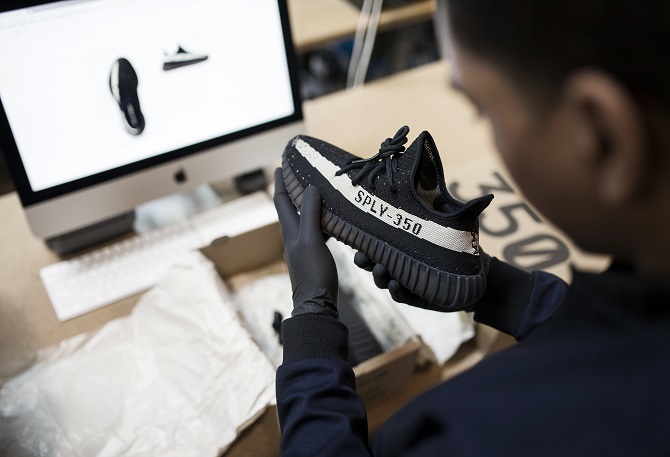
The raise brings Goat’s total funding to $290 million in the five years since its founding.
Goat, which is best known for its online sneaker marketplace, says it is aiming to add new products to its platform and expand to additional geographies.
It currently has 13 physical locations, including distribution and authentication centers that vet and ship its products to 170 countries, according to the company.
“We will utilize this new round of funding to capture the significant market opportunities in sneakers, apparel and additional categories through technological innovation and by building even greater scale across our verticals,” Goat co-founder and Chief Executive Eddy Lu said in a statement.
Lu’s company already sells some clothing and accessories, primarily from boutique brands and luxury labels such as Gianni Versace. Goat’s founder has been vocal about his intention to avoid becoming too broad-based by sticking to curated items that align with his brand’s image.
The collector sneaker marketplace has grown rapidly in recent years. Goat competitors like Detroit-based StockX have risen alongside the local company, benefiting from and helping drive the growth of “sneakerhead” culture.
Investment bank Cowen Inc.’s Equity Research division estimates that the North American sneaker resale market is worth more than $2 billion. The number of participants in the market has grown by 20% since last year, according to the firm.
“There is a multibillion-dollar business in the reselling of athletic footwear, particularly unique styles that aren’t made any more or aren’t available,” said Christopher Svezia, a footwear and apparel industry analyst with Wedbush Securities Inc.
“There are people with rooms full of boxes full of shoes,” he added. “Some people make a living doing this.”
Svezia said lifestyle changes in the wake of the Covid-19 pandemic have helped boost the broader market for athletic footwear.
“It’s one of these situations where people are at home, they want to wear something comfortable; they are more aware of being healthy,” he said. “They look at their closet and say ‘Well, I need to buy running shoes.’”
Svezia added that many in the industry predict this trend toward athletic footwear will endure beyond the pandemic as sustained shifts in remote working practices and aversions to crowded places shape consumer preferences.
